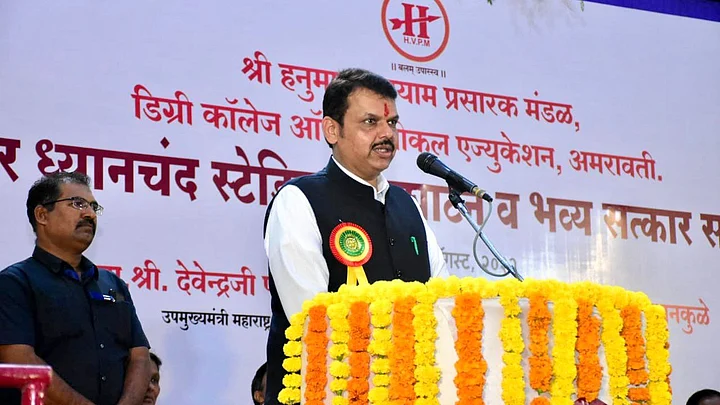The convicts in the 2002 Bilkis Bano case of Gujarat were released following a Supreme Court order, but it was wrong if a person accused of a crime is "felicitated" and there can be no justification for such an act, said Maharashtra Deputy Chief Minister Devendra Fadnavis on Tuesday, 23 August.
Replying to a discussion in the Legislative Council on an incident in Bhandara district, where a 35-year-old woman was sexually assaulted allegedly by three people, he said there was no reason to raise the Bilkis Bano issue in the House.
“The accused have been freed after completing nearly 20 years...14 years in jail. The release has been done after a Supreme Court order. But it is wrong if any accused is felicitated and welcomed. An accused is an accused and there can be no justification for this (act),” said Fadnavis, who is also the home minister.
Gujarat Government Orders Release
On 15 August, all the 11 convicts sentenced to life imprisonment in the case of Bilkis Bano's gang rape and murder of her seven family members during the 2002 communal riots walked out of the Godhra sub-jail after the BJP government in Gujarat allowed their premature release under its remission policy.
They were welcomed with garlands following their release from jail.
The Bharatiya Janata Party (BJP), whose MLAs were on the Gujarat government- appointed remission committee, faced flak over the release of the convicts and the welcome accorded to them.
A special Central Bureau of Investigation (CBI) court in Mumbai on 21 January, 2008, sentenced the eleven accused to life imprisonment on the charge of gang rape and murder of seven members of the family of Bilkis Bano, a riot survivor.
Their conviction was later upheld by the Bombay High Court.
These convicts had served more than 15 years in jail after which one of them approached the Supreme Court with a plea for his premature release.
The apex court had directed the Gujarat government to look into the issue of remission of his sentence as per its 1992 policy on the basis of the date of his conviction.
Thereafter, the government formed a committee and issued an order allowing premature release of all the convicts from jail.
(At The Quint, we question everything. Play an active role in shaping our journalism by becoming a member today.)
